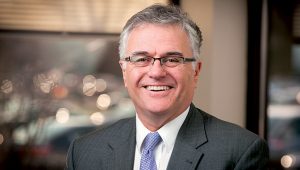What is STEM?
As a simple acronym, STEM stands for Science, Technology, Engineering, and Math. As a movement, STEM, especially as it relates to education and workforce development, has gotten a lot of attention in the last decade. The term was first coined in 2001 by the National Science Foundation. An educational research team originally labeled the curriculum they were developing to enhance education in science, mathematics, engineering, and technology as SMET but re-arranged the letters to form the arguably better sounding acronym, STEM. Since then, it’s become something of a rallying cry to improve the United States’ competitiveness in the global market for scientific and technological innovation, development, and research.
The acronym began to be used in discussions about the lack of candidates within the United States qualified to fill the growing number of positions in scientific and technical fields. STEM then grew into an educational concept that sought to integrate the teaching of science, technology, engineering, and math in schools instead of teaching each in a vacuum as was the norm in decades past. More importantly, a key tenant of STEM education is the application of these subjects to real-world challenges, encouraging critical and solutions-based thinking.
Is Nursing Considered STEM?
When we think of STEM fields, the first ones that come to mind are probably the traditionally high-tech disciplines like bio technology, software development, or mechanical engineering. But what about nursing? While nursing is rooted in the fundamentals of science and math, like medicine it is not typically included as a STEM field despite nurses needing to apply math, biology, and technology every day. Nursing also adheres to the guiding principles of STEM in that it applies these disciplines to find solutions to very real problems.
What fields are or are not considered STEM is constantly up for debate. It doesn’t help that beyond the acronym, there is no single agreed-upon definition for what constitutes a STEM profession and even official government agencies disagree. The U.S. Bureau of Labor Statistics lists “Health occupations” as STEM while the Immigration and Customs Enforcement doesn’t include nursing on its list of STEM fields that make non-citizens eligible for a visa extension. Higher education, however, has been quicker to accept nursing under the umbrella of STEM with several universities including the program within their science department—a designation which seems fitting given the average nursing curriculum includes a heavy focus on Microbiology, Science, and Statistics.
So why has nursing struggled for STEM acceptance? One factor is most certainly gender-based prejudice. The profession as a whole has long been discounted as a job for mainly women that’s focused on comfort and caring rather than the “hard” sciences. Another stumbling block are the capitalist undertones at the heart of the movement that frames the innovation and creativity inherent to STEM pursuits as vehicles for economic growth. While this isn’t strictly bad, the relentless promotion of job creation, industry “disruption,” and product development comes at the expense of fields that at their core are about more human outcomes.
Why STEM Recognition is Important
Why is STEM recognition so important? A STEM designation also carries with it a cachet and a promise of professional respect and higher salaries, factors that make building that all important qualified workforce easier. There’s also money at stake. With the country’s government, development, and scientific sectors deeply invested in boosting the STEM workforce, there is investment in the form of grants, scholarships, and support resources available for any initiative—educational or otherwise—promoting STEM. The U.S. Department of Education allocated $279 million in STEM discretionary grant funds in 2018 with many of these focused on encouraging women and underserved populations to enter a STEM field. With the shortage of nurses, especially nurses with advanced degrees, it’s more than dollars on the line. It would only benefit every community to have nursing included under the STEM umbrella and could allocate much needed funds into programs designed to recruit and train the workforce we need.
Perhaps the solution is to broaden our understanding of STEM into one of “STEMpathy,” a portmanteau coined in 2017 by New York Times columnist Thomas Friedman to combine technology with human connection. While Friedman still advocates an entrepreneurial mindset, he stresses that STEM should always be through the lens of compassion and empathy and paraphrases Descartes, saying “’I think, therefore I am’ to ‘I care, therefore I am; I hope, therefore I am; I imagine, therefore I am. I am ethical, therefore I am. I have a purpose, therefore I am. I pause and reflect, therefore I am.’”
Learn More About Excelsior’s RN to MSN Nursing Program
The STEM designation shouldn’t serve as an exclusionary device. We all benefit when STEM can grow to include fields like nursing, that use the power of science, technology, engineering and math to care, treat, and keep us safe. Learn more about Excelsior College’s RN to MSN program.
